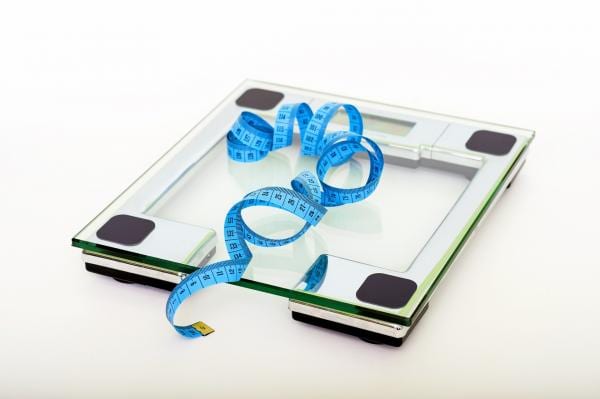
It's a fact of life: as you get older, losing weight becomes more difficult. This can happen for a variety of reasons. From increasing stress levels to a slowing metabolism to the inevitable loss of muscle, shedding that excess weight takes more effort and intention. Here's a closer look at why losing weight is so challenging and how you can succeed in your healthy lifestyle goals.
Age related hormonal changes.
Both men and women undergo changes in hormone levels as part of aging that help explain why middle age is prime time for putting on pounds. For women, menopause, which occurs most often between ages 45 and 55, causes a significant drop in estrogen that encourages extra pounds to settle around the belly. This shift in fat storage may make the weight gain more noticeable and increase the risk of high blood pressure, heart disease, high cholesterol, and type 2 diabetes. Fluctuations in estrogen levels during perimenopause, the years leading up to menopause, may cause fluctuations in mood that make it more difficult to stick to a healthy diet and exercise plan.
Men experience a significant drop in testosterone as they age, which begins to gradually decline around age 40 at a rate of about 1 to 2 percent per year. Testosterone is responsible for, among other things, regulating fat distribution and muscle strength and mass. In other words, declines in it can make the body less effective at burning calories.
Lack of sleep.
Before you had a demanding job, the boss who wants you in at 7 a.m., kids to drive to school and meals to cook, sleep was probably easy to come by. With age, that can quickly change. With all the added stress, medications that can keep you up late, and more trips to the bathroom in the middle of the night, getting eight hours of sleep might be more difficult than ever.
While sleep won’t help you lose weight, not getting enough of it will probably make you gain weight. When we miss out on sleep, we help keep ourselves running by filling up our tanks with sugary, whipped-cream topped lattes, or grab a donut for a little comfort and a pick-me-up. This can lead you to have zero energy to hit the gym at the end of the day. The fatigue caused by lack of sleep also zaps your decision-making, so you’re less likely to reach for a salad and more likely to reach for a quick hit of energy instead.
Changes in metabolism, muscle mass, and more.
One of the primary reasons losing weight is harder to do as you grow older is due to a slowing metabolism. Our metabolism is your body converting food into energy. When this slows down, you can’t burn calories like you used to. Many experts say that to counter this, you just need to trim off about 100 calories a day from your diet.
It is estimated that your metabolism slows down five percent every decade after you turn 40. This can occur because of the loss of muscle (or sarcopenia) which plays a crucial part in maintaining your metabolism. Consequently, as you age you may not be able to maintain the same dietary behaviors without gaining weight.
As you age, not only do you lose muscle more rapidly, but your body also retains more of a certain type of fat. The amount of brown fat, which generates heat and burns calories, decreases and the level of white fat, which stores excess calories, increases. Following a healthy diet, consuming foods with natural fat-burning properties, and taking part in moderate exercise are straightforward ways to help minimize white fat content.
Increased stress levels.
From demanding jobs to planning for retirement, our responsibilities increase as we get older. As a result, we experience more stress, leading to an increased release of cortisol, the body's stress response hormone. Cortisol can trigger the "flight or fight" response, which makes it most effective in life-threatening situations. However, we encounter many non-life threatening moments that still induce stress. This can lead to unnecessary cortisol being stored as fat cell deposits in the body.
Ways to help with weight loss.
While it might be more difficult as you get older, weight loss is still not impossible. A combination of exercise and eating nutritionally dense, but calorie-light foods will help you retain muscle and a balanced metabolism. Include more high-protein foods like beans, lentils, nuts, and seeds into your meals will also help. If you think your weight gain may have something to do with midlife stress, mindful eating will be a great option for you.
While any sort of exercise can help you shed girth, it’s very important that you lift weights at least twice a week to build muscle mass, which will help you lose weight. Beyond strength training, if you can take your overall exercise program up a notch, do so. Older adults who did high-intensity interval training not only lost weight but also had less DNA damage to muscle cells. This also helped trigger growth of new muscle.
While it might be harder to lose weight in your 40s and older, it can be done. Knowing what you are working against can help you plan for a more successful future. Focus on getting enough sleep, reducing your stress levels, creating a proper exercise and diet plan, and you’ll be feeling stronger than ever before. Talk to your doctor for additional help.

